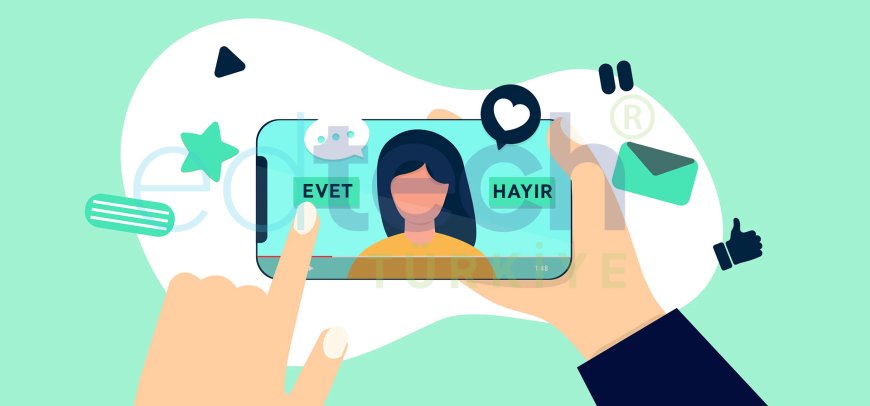Bringing Real-World Experiences into Digital Learning
Explore the role of interactive e-learning simulations in Turkey’s education and business sectors. Learn about their benefits, creation process, and future applications.

Welcome, EdTech Türkiye audience!
As educational technologies continue to evolve, interactive learning simulations are becoming increasingly valuable in education and corporate training. These simulations allow learners to engage with real-life scenarios in a risk-free environment, making training more effective and scalable.
In this article, we will explore what interactive e-learning simulations are, how they are created, and their growing role in Turkey’s education and business landscape.
What Are Interactive E-Learning Simulations?
Interactive e-learning simulations replicate real-world scenarios in a digital environment, allowing learners to practice decision-making, technical skills, and problem-solving without real-world risks.
✔️ Example: A customer service training simulation for a Turkish bank could include various customer interactions and problem-solving scenarios, preparing employees for real-world challenges.
Why Are E-Learning Simulations Important?
✔️ Safe Learning Environment – Learners can make mistakes and learn from them without real-world consequences.
✔️ Repeatability – Users can replay simulations multiple times to improve their skills.
✔️ Instant Feedback – Simulations provide real-time performance analysis.
✔️ Cost Efficiency – Reduces the need for expensive, in-person training sessions.
✔️ Scalability – Allows training of large numbers of employees simultaneously.
How Are E-Learning Simulations Created?
1️⃣ Define Learning Objectives
- Set clear goals for what learners should achieve.
- Example: "Improve sales negotiation skills" for a corporate training program.
2️⃣ Design Realistic Scenarios
- Create scenarios based on real-life business and cultural contexts.
- Example: Develop Turkey-specific case studies for customer service or retail training.
3️⃣ Develop Interactive Elements
- Use decision-making challenges, drag-and-drop exercises, and role-playing simulations to keep learners engaged.
4️⃣ Incorporate Multimedia Elements
- Use high-quality visuals, voiceovers, and video elements to enhance realism.
- Example: Include Turkish language voiceovers for a localized learning experience.
5️⃣ Implement Feedback Mechanisms
- Provide instant feedback and progress tracking to help learners assess their skills.
6️⃣ Test and Optimize
- Pilot the simulation with a small group of users before full implementation.
- Continuously update and improve content based on learner feedback.
The Future of E-Learning Simulations in Turkey
Turkey’s e-learning industry is rapidly expanding, particularly in banking, retail, and healthcare sectors.
✔️ Example: A Turkish bank reduced training time by 30% by implementing a customer service simulation for new employees.
Key Strategies for Expanding Simulation-Based Learning in Turkey:
✔️ Localized Content Development – Create Turkish-specific simulations that align with local business practices and regulations.
✔️ Investment in VR & AR Technologies – Expand virtual reality (VR) and augmented reality (AR) simulations for enhanced immersion.
✔️ Training for Educators – Develop training programs for instructors to effectively implement e-learning simulations.
✔️ Cross-Sector Collaboration – Foster partnerships between educational institutions and businesses to create industry-relevant simulations.
Final Thoughts: The Role of E-Learning Simulations in Turkey’s Future
E-learning simulations are transforming the education and corporate training landscape, providing engaging, scalable, and effective learning experiences.
- How is your organization using e-learning simulations?
- Share your thoughts with the EdTech Türkiye community!
Copyright Notice
All content on this website is protected under copyright laws. Unauthorized copying, distribution, or reproduction of any part of this content is strictly prohibited. All rights reserved, and any use requires prior written permission.